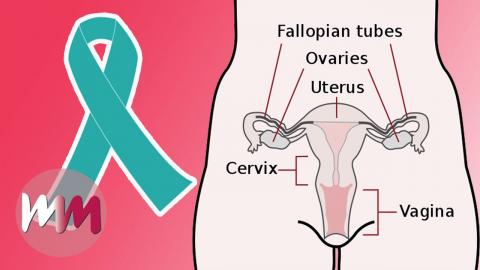Top 5 Cervical Cancer Facts You Should Know

These are facts to know about cervical cancer! For this list, we'll be looking at facts related to cervical cancer: its causes, warning signs and how to prevent it from happening to you.
Did you know that HPV Is the leading cause of cervical cancer. One of the biggest problems with HPV is that it is often transmitted without the host's knowledge, making it both extremely dangerous and highly prevalent. Perhaps not a surprise but smokers are more likely to develop cervical cancer.
#5: HPV Is the Leading Cause of Cervical Cancer
HPV, or human papillomavirus, is an infection transmitted through sexual contact. It can be contracted and spread by both men and women and can go undetected for years due to the lack of noticeable symptoms. While the majority of people who have HPV infections will not develop cervical cancer, it is nevertheless the primary cause of the disease, responsible for more than 90% of cases. One of the biggest problems with HPV is that it is often transmitted without the host’s knowledge, making it both extremely dangerous and highly prevalent.
#4: Smokers Are More Likely to Develop Cervical Cancer
HPV infections thrive on weakened immune systems and smoking is notorious for its ability to hamper the human immune system in a wide variety of ways. Thus, smoking leads to cervical cancer. This is not surprising, as smoking is such a huge contributing risk factor for so many cancers and illnesses. The data is in and it’s scary. If you’ve ever smoked, your cervical cancer risk is elevated, but the bigger deal is that current smokers are twice as likely to develop the disease. Additionally women who are overweight, use oral contraceptives for longer than 5 years (this risk declines over time after they are stopped) or have a family history of cervical cancer are at a higher risk of being afflicted.
#3: Cervical Cancer Is Detected with a Pap Test
As is the case with most forms of cancer, your best defense is a good offense. Enter – the Pap test (also known as a Pap smear). Not only is this screening test quick and pain free, it is also the best way to ensure you catch cervical cancer in its initial stages, when there’s still time to intervene with treatment. While Pap tests are not 100% accurate, (just like all screening tests) they are still by far the best diagnostic tool; done correctly, a Pap test detects a significant majority of cervical cancers. Most versions of the disease develop slowly, so you’d be wise to schedule semi-regular appointments with your gynecologist in order to catch them before they catch you.
#2: There Are Warning Signs
While it’s true that the early stages of most cervical cancers present little to no symptoms, warning signs will start to pop up as the disease develops. These signs may include pelvic pain, abnormal menstrual cycles, painful urination and discomfort or bleeding during sex. It’s important that you contact a medical professional immediately if find yourself experiencing any of these symptoms. So the moment you develop one of these symptoms, act quickly: it may just be the thing that saves your life. 50% of women diagnosed are between 35 and 55 years old. This cancer rarely affects women younger than 20, and approximately 20 percent of diagnoses are in women above the age of 65.
#1: It Is Highly Preventable With A Vaccine
As always, we like to finish these types of videos off with a little good news! The best way to ensure you don’t develop cervical cancer is to get vaccinated. As we’ve previously stated, the disease is mainly caused by HPV infection, something that can be prevented through the administration of the HPV vaccine. The vaccine will provide you with the necessary antibodies to keep your immune system in tip top shape. Vaccination coupled with regular pap tests is your best bet for keeping cervical cancer at bay. But remember, HPV infections are transmitted through sexual contact, so don’t forget to wear protection.
